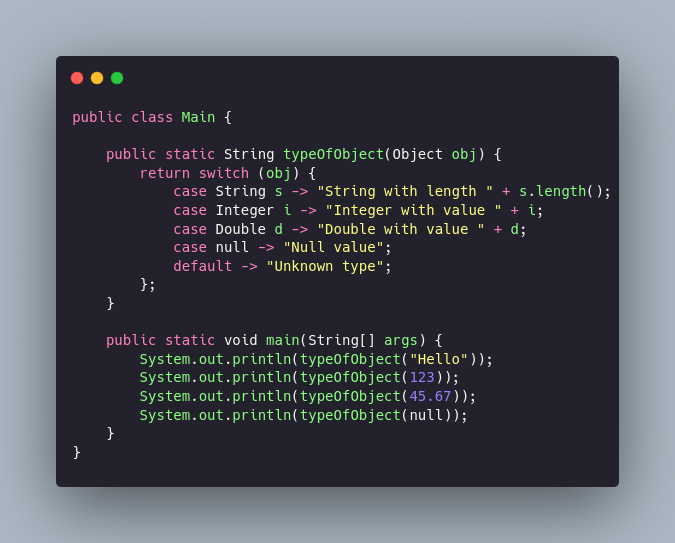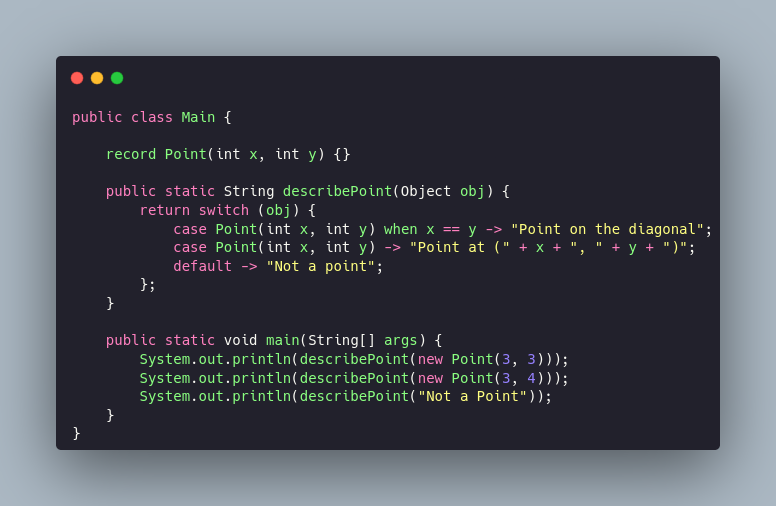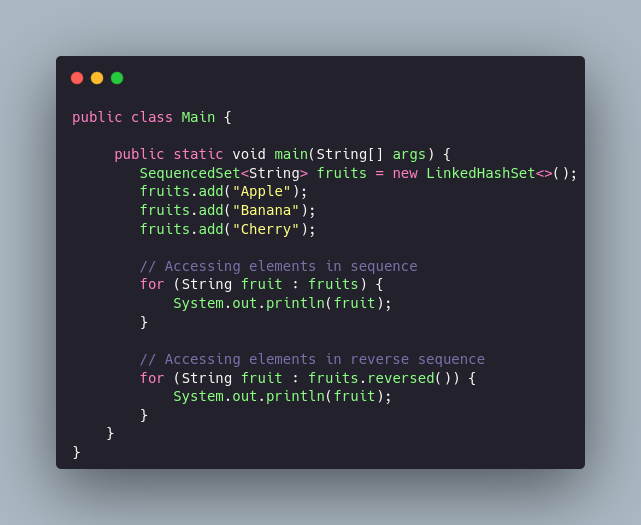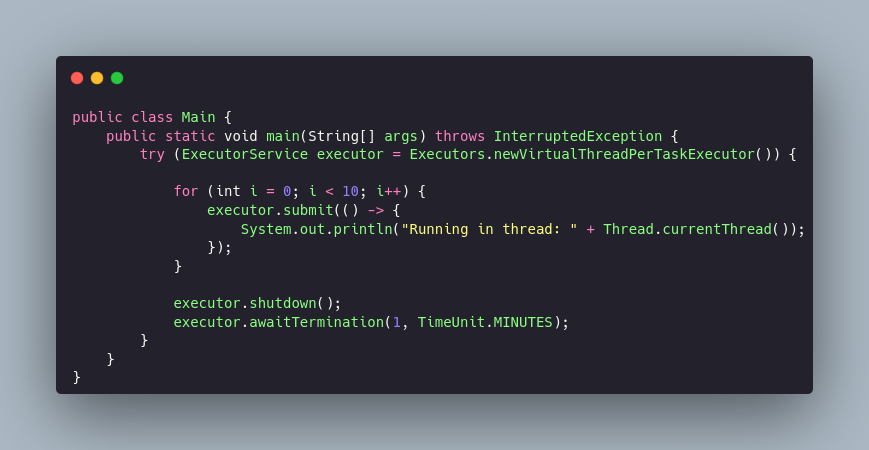Java 21, the latest release from the Java platform, brings a host of new features designed to improve developer productivity. This article will delve into some of the most significant additions and enhancements, complete with examples to illustrate their practical applications.
1. Pattern Matching for Switch
Pattern matching has been an evolving feature in Java, and Java 21 takes it further with pattern matching for switch statements. This allows for more concise and readable code when handling different data types and structures.
Example:

In this example, the switch statement matches the type of the input object and processes it accordingly, leading to clearer and more maintainable code.
2. Record Patterns
With record patterns, pattern matching is enhanced allowing records to be decomposed directly in pattern matching contexts. This feature simplifies the handling of records, making code more expressive and concise.
Example:

Here, the record Point is directly decomposed within the switch statement, leading to more readable code.
3. Sequenced Collections
Java 21 introduces Sequenced Collections, providing a new API that ensures the order of elements. This is particularly useful for collections where order matters, such as lists and ordered sets.
Example:

4. String Templates
String templates simplify string interpolation and improve readability when constructing complex strings. This feature allows embedding expressions directly within string literals.
Example:

The STR prefix denotes a string template, and expressions within \{} are evaluated and included in the resulting string, making the code more concise and readable.
5. Virtual Threads
Virtual threads in Java 21 aim to significantly enhance concurrency by allowing the creation of a large number of lightweight threads. This feature is part of Project Loom and simplifies the development of high-throughput, concurrent applications.
Example:

In this example, the newVirtualThreadPerTaskExecutor method creates an executor that utilizes virtual threads, allowing for efficient concurrency management with minimal overhead.
